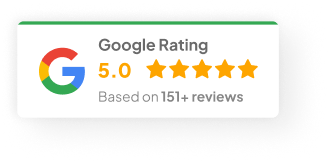08 May 25
Does Missing WordPress Favicon Affect Customer Trust and Confidence
You probably spend heaps of time and money getting your branding just right — logos, colours, fonts — all that good stuff. But what about the tiny little icon sitting in your browser tab? That’s called a favicon, and I’ll be honest, most business owners overlook it. But that small thing can make a surprisingly big difference to how your site feels to visitors.
If you’ve never added a favicon to your WordPress site, you might be wondering: does it even matter? Short answer — yeah, it does.
What’s a Favicon, Anyway?
It’s that tiny icon you see next to the page title up in your browser tab. When someone bookmarks your site or saves it to their phone home screen, that icon shows up there too.
It’s super small — just a few pixels — but it packs a punch in branding terms. Think about when you’ve got 10 tabs open. How do you find the one you need? Your favicon helps users spot your site fast. Without it, browsers show some generic globe or blank icon, which kinda screams “unfinished.”
Why You Should Care About Favicons on Your WordPress Site
-
Brand recognition on the fly. Your favicon is like your mini-logo in the browser. When people scan through tabs or bookmarks, it’s a quick way to remind them who you are.
-
Looks professional and builds trust. No favicon? People might not consciously notice, but subconsciously they’ll think the site’s half-baked or not maintained properly.
-
Makes browsing easier for visitors. Favicons help people quickly find your page amid a sea of tabs. It’s a small thing that keeps users happy.
-
Adds to your overall brand consistency. Your favicon is a tiny but important piece of your visual identity, reinforcing your brand everywhere your site pops up.
How to Nail Your Favicon Design
Keep it simple. Complex designs won’t translate well at tiny sizes
-
Use initials, or a simplified version of your logo
-
Stick to your brand colours — consistency is key
-
Pick high contrast colours so your favicon stands out on both light and dark browser themes
-
Save it in the right format: WordPress likes 512 x 512 pixels in .png or .ico
-
Test it on different browsers and devices to make sure it looks sharp everywhere
Adding a Favicon in WordPress is Actually Pretty Easy
Just head to your WordPress dashboard and:
-
Go to Appearance > Customise > Site Identity.
-
Click on Select Site Icon.
-
Upload your favicon image (remember, 512×512 px is the sweet spot).
-
Save and publish.
If you want more control or want to cover all devices and platforms, plugins like Favicon by RealFaviconGenerator can help.
Does Missing a Favicon Hurt Your SEO?
Google doesn’t directly rank you lower if you don’t have one, but:
-
On mobile search results, your favicon appears next to your site listing. A missing one looks less professional and may reduce click-through rates.
-
If visitors don’t trust your site (even subconsciously), they leave quicker, which signals poor user experience.
-
Without a memorable favicon, people might not come back as often or find your site easily in their bookmarks or tab history.
So it’s not about rankings, but about trust, branding, and usability — which do affect your site’s performance indirectly.
The Small Icon That Makes a Big Difference
Look, I get it. Favicons are tiny and easy to forget. But I’ve seen how a small detail like this can lift the whole feel of a site. For WordPress users, it’s a quick win that makes your website look complete, professional, and polished.
If your site still shows a blank tab or default globe, take five minutes and fix it. You’ll be surprised how much it helps.
At Chromatix, a web design agency in Melbourne, we’re big believers in sweating the small stuff because it all adds up to a better experience for your visitors. Want a hand with your website branding? Give us a call and let’s make your site stand out for all the right reasons.


